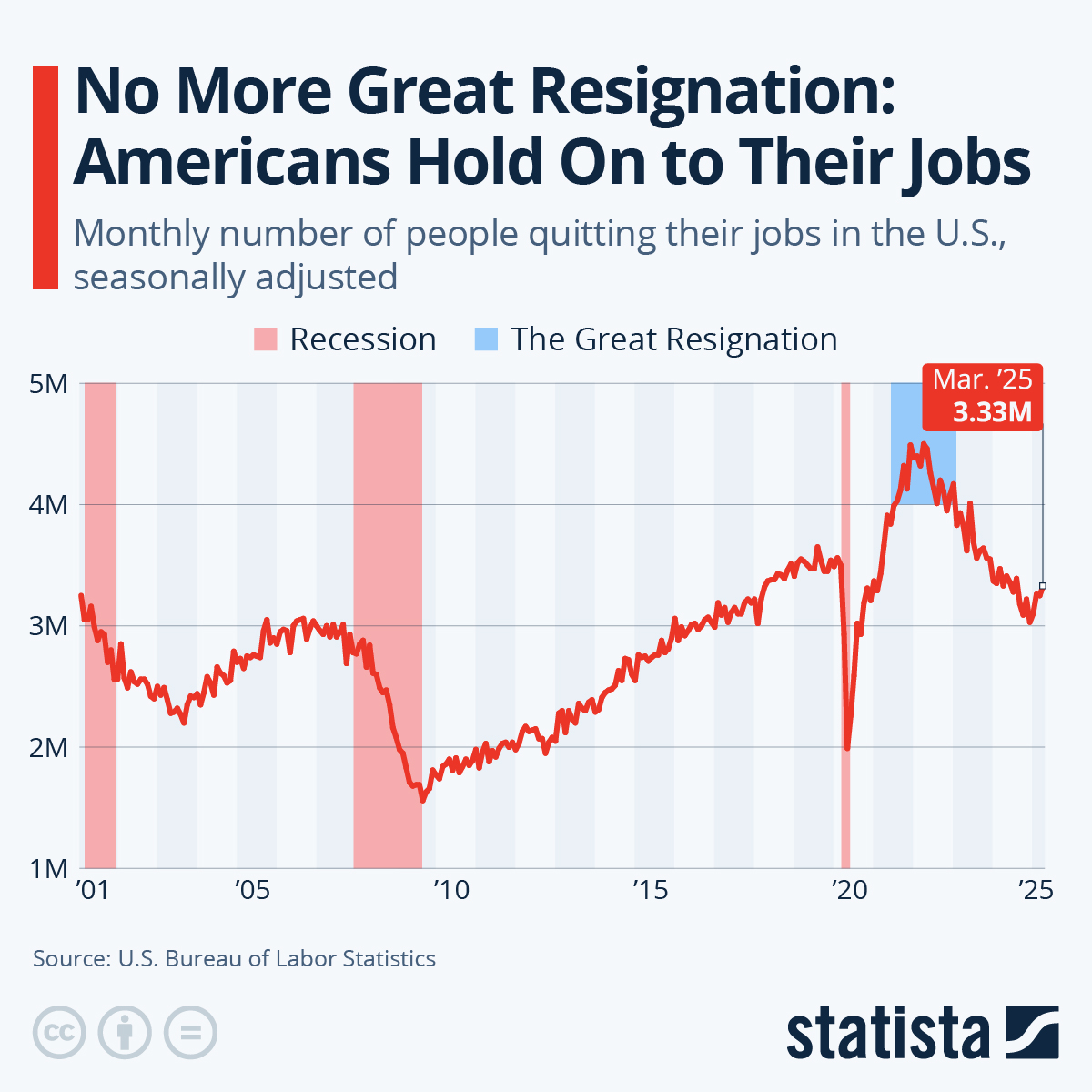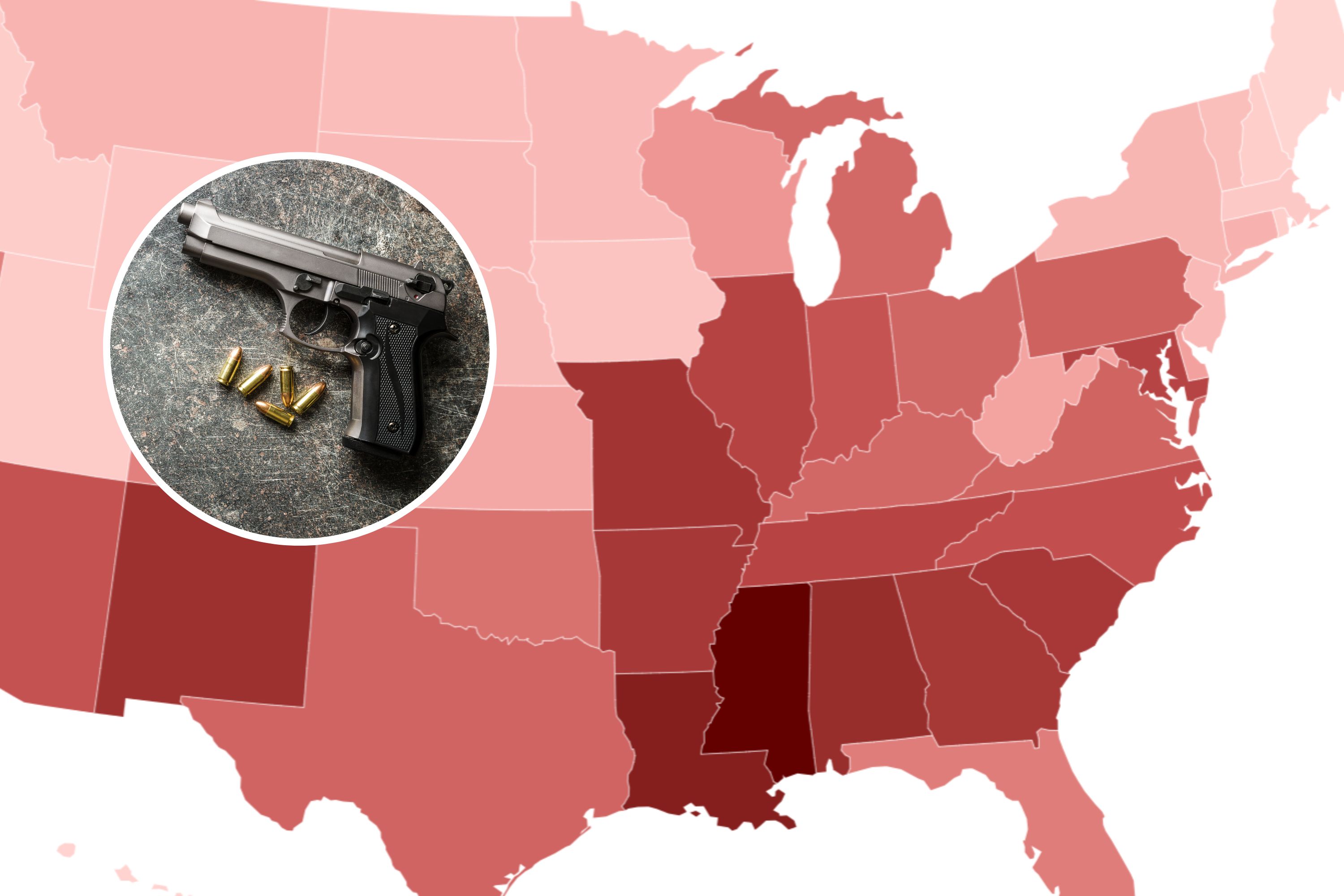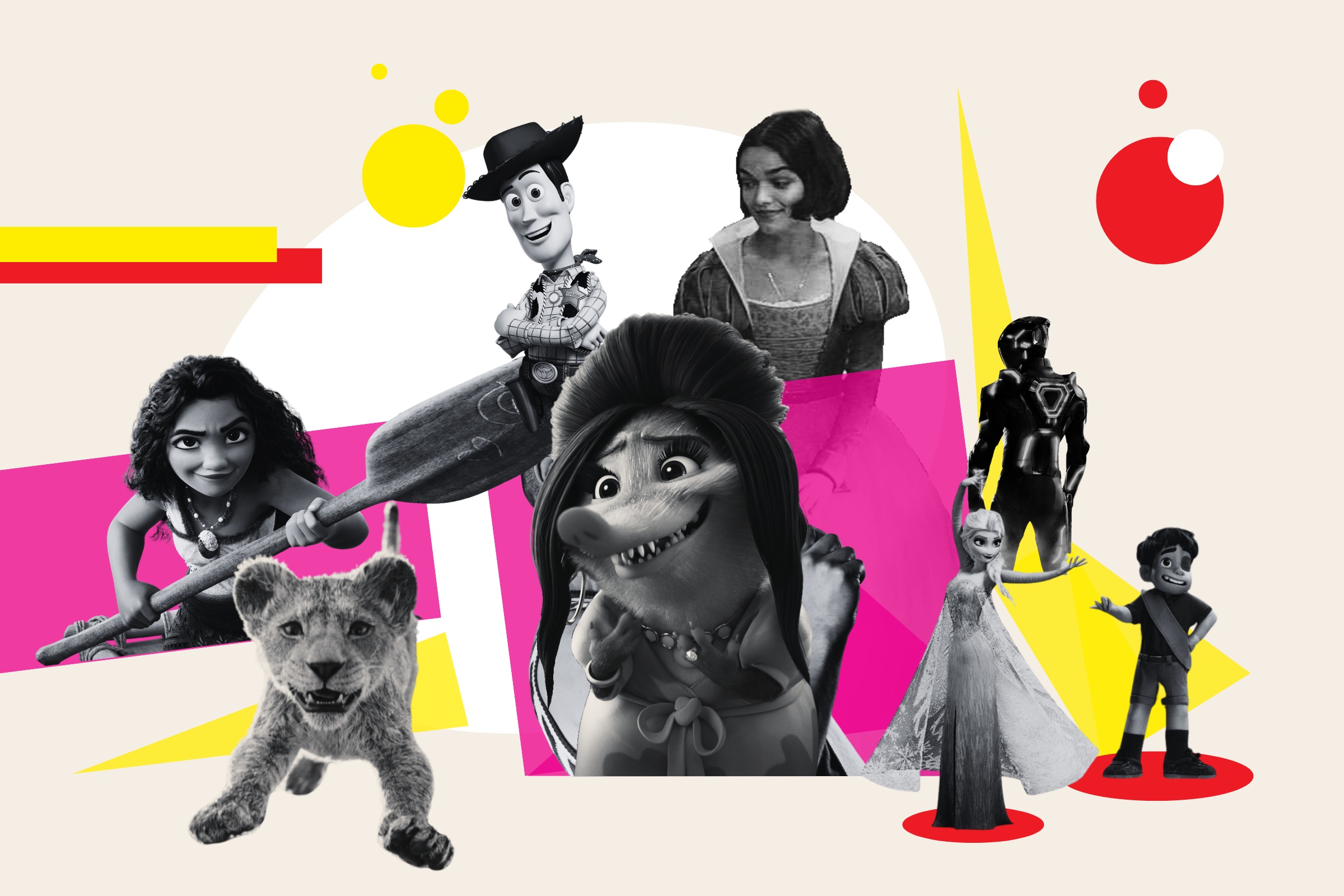The words Americans most often misspell on their CVs has been revealed, with "educated" and "professional" among the most common mishaps.
Your CV and cover letter are often how most prospective employees make a first impression, so it's crucial that it's a good one.
The job market has undergone a shift since the pandemic, with a high number of people leaving their jobs in "the great resignation." The chart below, provided by Statista, shows the trend.
 You will find more infographics at Statista
You will find more infographics at StatistaThe labor market, which saw 6.4 million new hires in June, according to the latest Job Openings and Labor Turnover Summary (JOLTS), has seen a new term coined recently.
"Quiet quitting" denotes workers establishing a healthy work-life balance by solely sticking to their job description, and fixed hours.
LinkedIn described it as: "They call it quiet quitting but it's really just doing your job requirements during normal business hours people deserve a good work/life balance and not answering a work email at 10pm isn't quitting it's just being a normal human who has a life and sets healthy boundaries."
THEY CALL IT QUIET QUITTING BUT IT'S REALLY JUST DOING YOUR JOB REQUIREMENTS DURING NORMAL BUSINESS HOURS PEOPLE DESERVE A GOOD WORK/LIFE BALANCE AND NOT ANSWERING A WORK EMAIL AT 10PM ISN'T QUITTING IT'S JUST BEING A NORMAL HUMAN WHO HAS A LIFE AND SETS HEALTHY BOUNDARIES pic.twitter.com/uEto7i42VP
— LinkedIn (@LinkedIn) August 18, 2022
The ethos broadly mirrors that embodied by the Gen-Z generation, now entering the workforce. Research on company culture, from the website Great Place to Work, said that the young wanted liveable pay, workplaces that are psychologically and emotionally healthy, and "purpose and special meaning" in their work.
The BLS report noted on the last day of June, the number of job openings stood at 10.7 million.
Poor grammar and spelling can instantly turn off management, as well as undermining a candidate's skills.
Online learning platform Preply gleaned the statistics from hundreds of American CVs, on Indeed.com, and highlighted the top 15 mistakes.
Among the most commonly misspelled words were educated, successful, achieved, professional and responsible.
The most commonly misspelt words on CVs
- Experienced as experianced
- Successful as sucessful
- Counseled as Counsiled
- Judgment as Judgement
- Responsible as Responsable
- Professional as Profesional
- Succeeded as Suceeded
- Confident as Confidant
- Inspired as Insipired
- Achieved as Acheved
- Educated as Educatied
- Focused as Focussed
- Independent as Independant
- Management as Mangement
- Taught as Tought
And they also shared the top 20 buzzwords that occur frequently on CVs, along with how often they featured.
The terms include skilled, reliable, detail-oriented, motivated, trained, proficient and expert, meaning these could be ones to avoid to ensure your application stands out.
And, despite not making the top 20, more than 4,000 people described themselves as a "rockstar" on their CV, a similar amount claimed they had a "good sense of humor," and more than 1,000 said they were the "best of breed."
Most common words people use to describe themselves on CVs
- Responsible - 5,317,001 times
- Organized - 3,757,732 times
- Social - 3,371,817 times
- Trained - 2,967,429 times
- Proficient - 2,122,067 times
- Motivated - 2,115,892 times
- Friendly - 1,667,314 times
- Experienced - 1,621,665 times
- Creative - 1,513,641 times
- Team player - 1,462,071 times
- Bilingual - 1,406,675 times
- Skilled - 1,382,899 times
- Successful - 1,266,930 times
- Reliable - 1,212,723 times
- Driven - 1,111,720 times
- Independent - 990,203 times
- Detail-oriented - 970,027 times
- Expert - 899,409 times
- Dependable - 878,805 times
- Outgoing - 860,509 times
Yolanda del Peso, marketing specialist at Preply, shared the top six tips to make your CV stand out, including omitting personal pronouns, starting sentences with action verbs, using language matching the job description, giving specific evidence of skills and avoiding unnecessary adjectives.
Del Peso said: "Front-load your sentences, so the most important piece of information is at the start and is introduced using a dynamic verb. For example, 'answered customer complaints' might become 'managed customer complaints.'
"Avoid the use of 'I' and 'we' to make your resume sound more scientific and factual. For example, 'I lectured every week to a cohort' might become 'Lectured weekly to a 30-strong student cohort.'
"Adapt your resume for every job role and try to incorporate specific words and phrases from the job advertisement you are applying for the best chance of success.
"To back up your claims give clear, specific, and relevant evidence. Where possible, try to quantify achievements. For example, change 'developed a large Twitter presence' to 'grew Twitter account by 3k followers in Q2.'
"Keep it simple and try not to use unnecessary adjectives or adverbs. For example, 'skillfully negotiated contracts' would become 'negotiated contracts.'

"Thoroughly check for spelling and grammar errors. Formatting and grammatical errors can be the difference between success and failure. Make sure you check your resume at least twice, and if possible ask someone else to review it before you submit it."
To gather the data, Preply explained they: "Created a seed list of 150+ American English words and phrases used by job hunters to describe themselves, their achievements and responsibilities.
"Then, using Indeed's resume database for the United States, Preply analyzed how many CVs each word had been featured on in the last 6 months.
"To reveal the most commonly misspelled words, Preply analyzed average monthly Google Search volumes to investigate which of the buzzwords people in the U.S. were searching for spelling guidance on."
Uncommon Knowledge
Newsweek is committed to challenging conventional wisdom and finding connections in the search for common ground.
Newsweek is committed to challenging conventional wisdom and finding connections in the search for common ground.
About the writer
Rebecca Flood is Newsweek's Audience Editor (Trends) and joined in 2021 as a senior reporter.
Rebecca specializes in lifestyle and viral ... Read more





